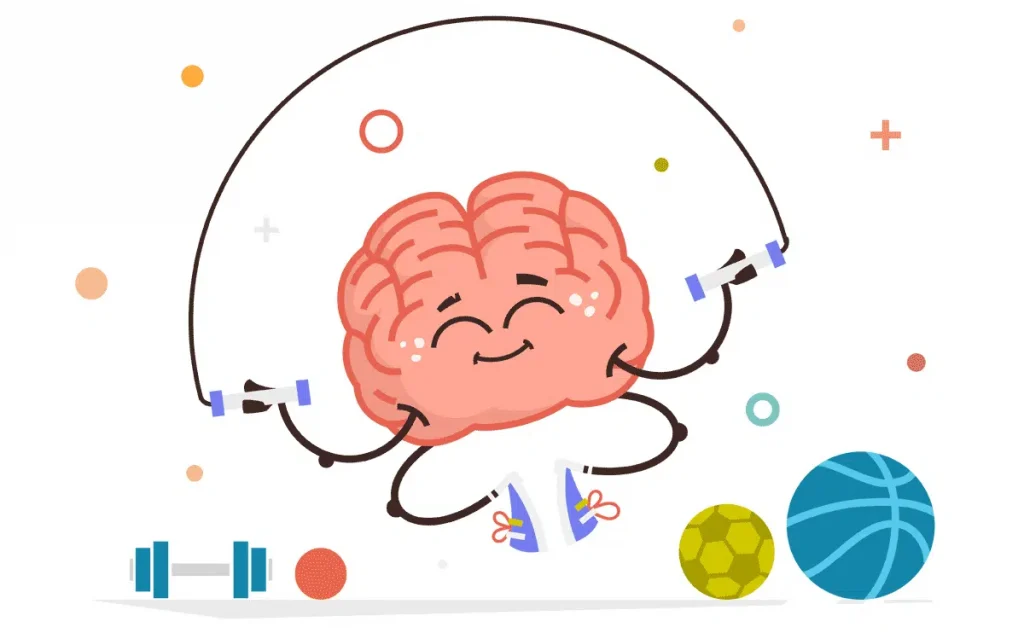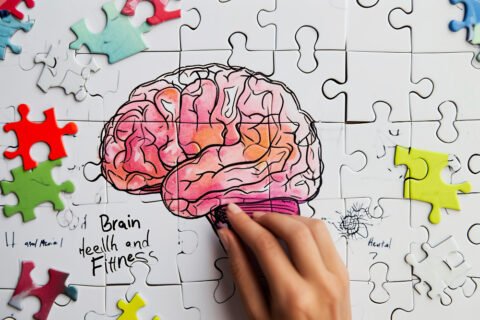The concept of neural rewiring also known as neural plasticity is not new, but it has recently gained renewed attention in the field of neuroscience as a fascinating aspect of the human brain and behavior. Neural plasticity suggests that the brain can generate new brain cells through a process called “neurogenesis.” We also have the potential to develop “brain resilience” and combat memory loss over a lifetime, which may offer some resistance to neurodegenerative diseases like dementia. However, it’s crucial to note that there is no known prevention or cure for such conditions.
In the bustling landscape of modern India, the implications of lifestyle choices on our cognitive health are increasingly evident. A holistic approach, including good nutrition, physical activity, mental stimulation, socialization, and spirituality for stress reduction, has been linked to cognitive health and a reduced risk of dementia and mood disorders. This article aims to explore the role of brain training exercises in stimulating and shaping the brain and whether they hold clinical value.

Understanding brain training
Brain training involves a range of digital games and exercises designed to engage individuals in cognitive activities. These games encompass memory, language, visual-spatial skills, executive functions, reaction time, attention, and processing speed. As brain training gained popularity, questions arose about its clinical benefits. In 2014, over 70 academics released a consensus statement, highlighting that playing brain games primarily improved the ability to play more of these games and challenging claims that it could prevent or reverse Alzheimer’s disease.
While various studies have shown the positive impact of certain behaviors on cognitive and emotional skills, it’s essential to distinguish between promoting brain health and preventing disease. Brain fitness and training undoubtedly promote brain health by keeping individuals engaged and socially active, but their clinical value remains uncertain.
Brain training: Recent research findings
Ongoing research in the field of brain training has yielded promising results. Notably, the Advanced Cognitive Training for Independent and Vital Elderly (ACTIVE) study, initiated in 1998, has produced over 50 peer-reviewed studies. Early findings indicated that brain training had lasting benefits for older, healthy individuals. One study showed that older participants who engaged in brain training sessions over five to six weeks experienced improved cognitive abilities for up to 10 years. Another study revealed that ongoing brain training significantly reduced the risk of depression in older individuals.
Moreover, a recent longitudinal-controlled study involving healthy participants indicated that brain training could reduce the risk of dementia by 48 percent. This study’s results generated significant interest among dementia caregivers and researchers, underscoring the potential clinical benefits of brain training.

A personal perspective
Brain training presents an engaging opportunity. From a personal perspective, here are some insights on its viability for the general public and the clinical-scientific community:
- The Power of Neural Plasticity: Neural plasticity allows us to continually shape the brain for better health across our lifespan. It’s an area that requires in-depth research and application, as our ability to promote brain health through life is significant.
- Engaging Cognitive and Emotional Health: Brain training provides a digital platform for cognitive stimulation, focus, stress reduction, and socialization. While conclusive statements regarding its clinical efficacy should be approached cautiously, it has potential benefits for cognitive and emotional health.
- Ongoing Research: Ongoing controlled and randomized studies are essential to establish consistency in findings and confirm the effectiveness of brain training as a clinical intervention. Speed of processing appears to be one cognitive function that shows potential clinical value for both cognitive and emotional health.
Explore cognitive age tests designed to unlock your mental capabilities, offering personalised insights for a sharper, more focused, and resilient mind. Your cognitive wellness journey starts here!
A holistic approach
Brain training is part of a broader proactive brain health lifestyle. As research continues, we are likely to discover that preventing or curing neurodegenerative conditions requires a multi-factorial approach. Crafting a thoughtful discussion around brain training is essential. It keeps individuals engaged, cognitively challenged, socially active, and instills a sense of purpose. While brain training’s role as a clinical intervention is still evolving, there is room for optimism that it can contribute to maintaining cognitive and emotional health in older individuals. Further research, critical attention, and funding will be instrumental in exploring this potential.
As our understanding of the human brain deepens, we unlock the doors to cognitive health and well-being. Brain training is an exciting avenue in this journey, offering individuals an opportunity to keep their minds agile and resilient throughout life. While we remain cautious about overhyping its clinical benefits, we embrace the possibilities it brings to enrich our cognitive and emotional lives. Catch up on some facts about the human brain here!
By Dr. Paul Nussbaum




